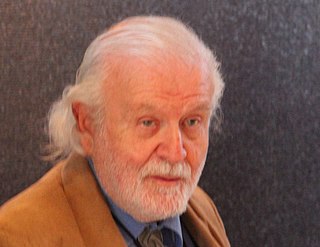A Quote by Edward Teller
One may say that predictions are dangerous particularly for the future. If the danger involved in a prediction is not incurred, no consequence follows and the uncertainty principle is not violated.
Related Quotes
Climate change is there as a reminder that we can get richer and safer societies that are also consuming more and more to the point where the stability of Earth's systems is being challenged at potentially catastrophic levels. I don't think we can stop that. Just the very same worries I have about prediction on the positive progressive side - I mean, predictions that say we'll be great, we'll be fine - also apply to predictions that are too catastrophic. I'm not sure we get those predictions right either.
We have a duty to warn on an individual basis if we are treating someone who may be dangerous to herself or to others - a duty to warn people who are in danger from that person. We feel it's our duty to warn the country about the danger of this president. If we think we have learned something about Donald Trump and his psychology that is dangerous to the country, yes, we have an obligation to say so.
My meditation techniques ARE dangerous. In fact there cannot be any meditation techniques which are not dangerous. If they are not dangerous, they are not meditation techniques, they are tricks. Just like Transcendental Meditation of Maharishi Mahesh Yogi. They are mental tricks. Just consolatory. No danger. At the most they can give you good sleep, that's all. If you miss, you don't miss anything, you remain the same. If you attain, you attain to good sleep, that's all. No danger involved.
One of the predictions that I was the first to make is now materializing, and that prediction was that Obama isn't going away. That Obama is going to hang around Washington and do everything he can to undermine the next president, particularly if and when the next president tries to unravel any of the gigantic web of deceit and debauchery that Obama has implemented as president.
Predictions of the future are never anything but projections of present automatic processes and procedures, that is, of occurrences that are likely to come to pass if men do not act and if nothing unexpected happens; every action, for better or worse, and every accident necessarily destroys the whole pattern in whose frame the prediction moves and where it finds its evidence.
Decision-making is difficult because, by its nature, it involves uncertainty. If there was no uncertainty, decisions would be easy! The uncertainty exists because we don't know the future, we don't know if the decision we make will lead to the best possible outcome. Cognitive science has taught us that relying on our gut or intuition often leads to bad decisions, particularly in cases where statistical information is available. Our guts and our brains didn't evolve to deal with probabilistic thinking.




































